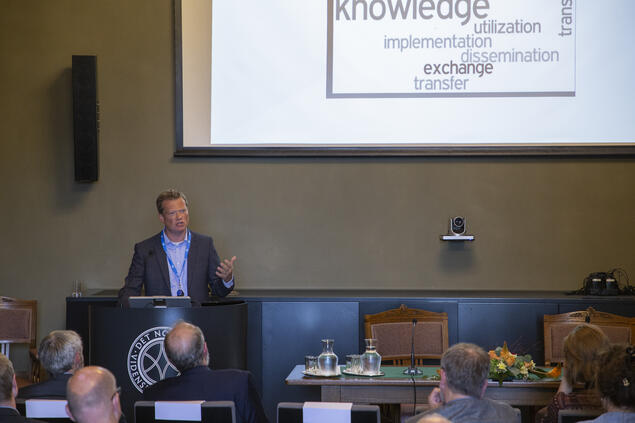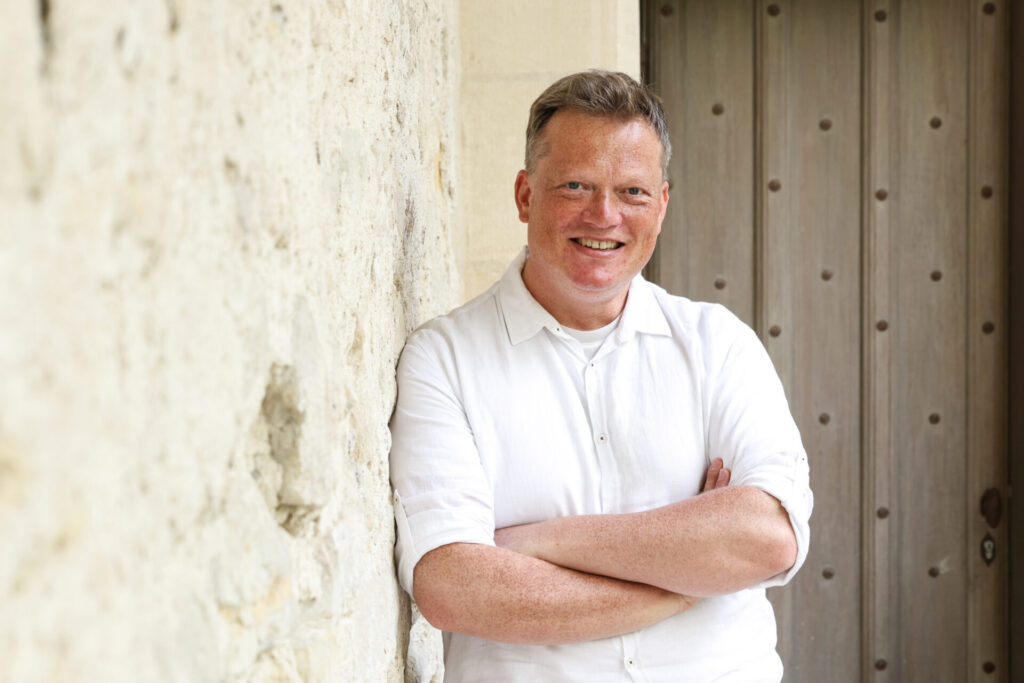Alumni Spotlight: Eivind Engebretsen
Centre for Advanced Study at the Norwegian Academy of Science & Letters (CAS)
By Julie Ellinor Frølich Dalseth, 05.05.2022

‘The question “What are the facts?” must be supplemented with another one: “How do these facts make sense to people, and why?”’, said former CAS project leader and professor at the University of Oslo Eivind Engebretsen.
Together with former CAS fellow Mona Baker, he is out with a new book on medical evidence in the time of pandemics.
We talked to the professor about the book, which is a product of his CAS research, the meaning of medical evidence and his time at CAS.
In your forthcoming book, Rethinking Evidence in the Time of Pandemics: Scientific vs Narrative Rationality and Medical Knowledge Practices, you try to make sense of medical evidence in the time of the coronavirus pandemic. What have you found out?
The main finding is perhaps that many stories that contest the official pandemic policy, including face masking, lockdowns and even vaccines, cannot simply be dismissed as irrational because they do not accord with scientific rationality.
Stories such as those circulating in certain communities that have suffered racism and been on the receiving end of police violence, for example, resonate with their life experiences and hence make sense to them. As Boston-based black physician Gabriel Felix explains, people of colour will be ‘far too familiar with having to interact with law enforcement for appearing “suspicious”’ and will often be more afraid of the consequences of wearing a face mask than of covid. This is a perfectly coherent, rational position to adopt given the logic of their story.
At the same time, many stories told by official representatives of health authorities during the pandemic were not coherent, nor credible – one example being the WHO’s initial advice, which first dismissed the theory of covid being airborne as ‘misinformation,’ only to embrace the same theory later, at least implicitly without correcting earlier statements.
I do not of course mean to contest the importance of science and scientific arguments or to claim that all knowledge is equally rational or true. The argument Mona Baker and I present in our book is rather that all knowledge – scientific and non-scientific – is ‘ultimately configured narratively, as a component in a larger story implying the being of a certain kind of person, a person with a particular worldview, with a specific self-concept, and with characteristic ways of relating to others’ (Walter Fisher, Human Communication as Narration, 1987).
While technical concepts and criteria for judging the rationality of communication can be highly valuable in the specialised contexts in which these concepts are developed, they do not represent absolute standards of truth. No community, knowledge or genres can have a final claim to such standards. There is no story, no matter how scientific, that ends all storytelling. Conversely, no story can simply be dismissed as irrational because it does not accord with traditional standards of logic but must be understood, addressed and, when deemed necessary, contested based on the situated logic on which the story is built and the values it encodes.
Your book interrogates ‘the assumption that evidence means the same thing to different constituencies and in different contexts,’ and you offer a theoretical framework that identifies and distinguishes different types of rationality. Could you explain?
As an alternative to this singular epistemology underpinning evidence-based medicine, our book argues the need for situated epistemologies that are relative to the site or discourse where the knowledge is articulated and to the narrative location of those who articulate or evaluate that knowledge. Rather than taking the EBM hierarchy for granted as the only rational means of assessing evidence, we explore the various stories about COVID-19 and offer a theoretical basis for understanding how different individuals and communities decide which of a range of competing stories they should believe in and why.
We believe that it is only by creating awareness about the specific values people adhere to and invest in their narratives that we can adequately understand why they believe in these particular stories.
The theoretical framework we apply is Walter Fisher’s narrative paradigm. The basic assumption underpinning the narrative paradigm is that ‘[n]o matter how strictly a case is argued – scientifically, philosophically, or legally – it will always be a story, an interpretation of some aspect of the world that is historically and culturally grounded and shaped by human personality’ (Fisher 1987:49).
When the proponents of evidence-based medicine (EBM) talk about critical appraisal of evidence – and whether the evidence is weak or strong – their view is embedded within a rational-world paradigm in which the world is conceived as a set of facts and logical puzzles that can be solved through appropriate methods and the application of reason. Our claim is that such appraisal is incomplete. The question ‘What are the facts?’ must be supplemented with another one: ‘How do these facts make sense to people, and why?’ The latter is not about appraising the facts but about appraising the stories within which they are woven and acquire meaning.
Importantly, we do not reject the EBM paradigm, nor do we suggest that it should be replaced by the narrative paradigm. We simply argue that – from the perspective of the narrative paradigm – the empiricist notion of evidence underpinning EBM is only one possible situated interpretation or value according to which knowledge claims can be and are in practice assessed.
The main purpose of Fisher’s narrative paradigm is to provide a theoretical framework that can account for the way in which any communicative encounter – whether it involves a scientific theory, a fictional story or a factual account – is assessed by different individuals with different life experiences and values, not primarily by resort to logical inference but on the basis of what he calls ‘good reasons.’
The two principles that define narrative rationality and embody the logic of good reasons in Fisher’s paradigm are narrative probability (what constitutes a coherent story) and narrative fidelity (whether a story resonates with the audience’s experience and values). These may be thought of as tests that we apply – whether instinctively or through conscious reasoning – to decide whether a narrative offers good reasons for action and belief.
Back in 2019/2020 you led the CAS project The Body in Translation: Historicising and Reinventing Medical Humanities and Knowledge Translation together with John Ødemark, professor of cultural history and museology at UiO. In what way, if any, did your stay at CAS affect your research career?
Our stay at CAS was of course strongly affected by the covid pandemic. We ended the year in complete lockdown, and I was called back to the Faculty of Medicine at UiO to take part in the crisis management as the Vice-Dean of Education.
Despite these unexpected events, I have greatly benefitted from my stay at CAS. The theoretical discussions about knowledge translation that we started at CAS created the foundation for the study of medical evidence that we have further developed in our book. Most importantly, the stay at CAS marked the beginning of a close collaboration with Mona Baker. In addition to our co-authored book, this has led to a new research programme at our Centre for Excellence in Education, SHE, which involves the development of a large suite of electronic corpora of medical and medical-related texts (the Oslo Medical Corpus) to be used in education and research in global health.
What advice would you give to future CAS project fellows?
I can’t emphasise enough how important it is to prepare adequately for the stay and actually start the project before you move into CAS. One year is not a lot of time, and you should use it well. At the same time, be flexible and curious enough to identify and act on new, unforeseen opportunities that arise from interaction with other scholars at CAS, as happened in my collaboration with Mona Baker.
https://cas.oslo.no/news/alumni-spotlight-eivind-engebretsen-article5274-974.html

Leave a Reply